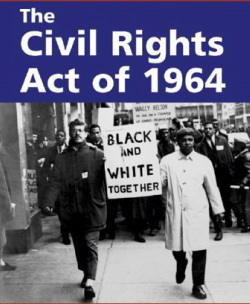The meaning of Civil Rights

The term "rights" first appeared in the American political context in 1776 in the Declaration of Independence, which referred to rights as “unalienable” and applying to "all men," i.e., to all people (even though the founders didn't always practice what they preached), but the term "civil rights" did not appear until 1791, when it was used by Thomas Paine to whom it meant no less than what the term "unalienable rights" meant to Thomas Jefferson. "Civil rights", according to Paine, are based on the natural rights of every member of society. The term "civil rights" appeared in American law for the first time in the Civil Rights Act of 1866, which was designed to extend to blacks the same rights that whites already possessed. One of the principal sponsors of the Act described civil rights as "the absolute rights of individuals, such as the right to personal security, the right of personal liberty and the right to acquire and enjoy property." Civil rights were thus construed not only to apply equally to every individual, irrespective of race or gender, but also to include the fundamental rights enunciated in the Declaration of Independence. The principle underlying liberty and property rights is that no one may gain values from others without their voluntary agreement -- that just as people have the right to associate with others by mutual consent, so they have the right to dissociate from others through personal choice. Thus, to force a black worker to labor for a white employer (as was done on the Southern plantations) would violate civil rights, but so would forcing a white employer to hire a black worker (as is done under Title VII of the 1964 Civil Rights Acts). To threaten a business with closure for serving blacks (as was done under Jim Crow) would violate civil rights, but so would threatening a business with closure for refusing to serve blacks (as is done under Title II of the 1964 Civil Rights Acts). The proper function of government -- and the fundamental purpose of civil rights -- is to protect and defend freedom of choice, not violate it -- to protect people from being enslaved to others, not enslave people to others.